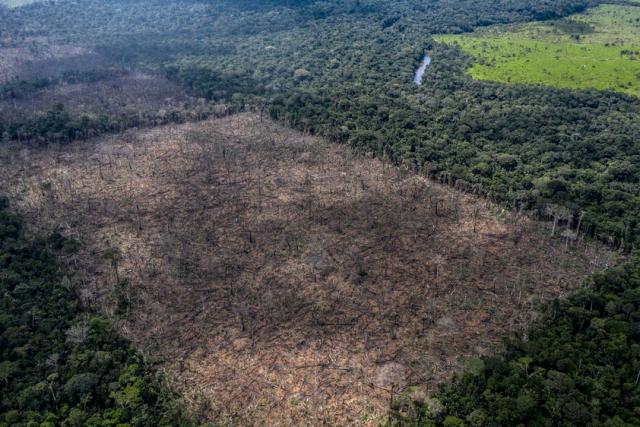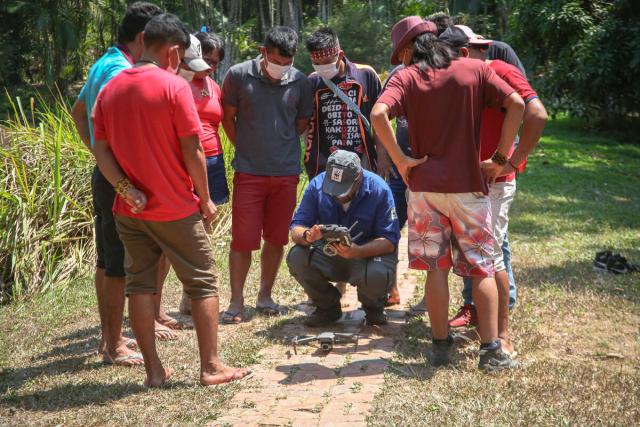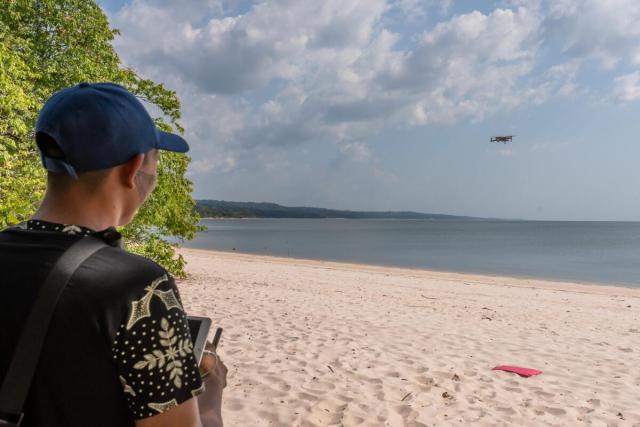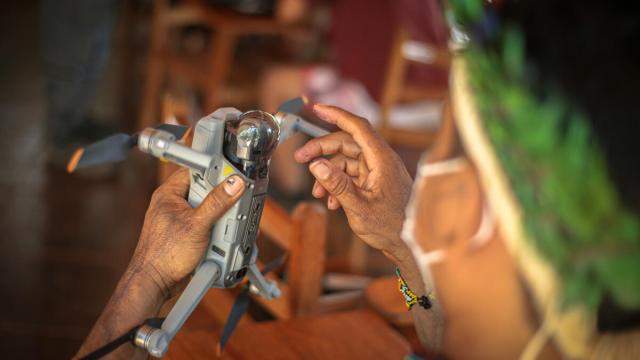
Issue
The Amazon plays a critical role in our global climate system and is thought to be home to 10% of known species on Earth.
Indigenous territories cover around 30% of the Amazon, but one third of them are under pressure from unsustainable extraction and infrastructure development.
Indigenous People face threats to their safety and their Amazon home, including from mining, land grabbing, deforestation, fires and territorial invasions.

Solution
Since 2019, WWF-Brazil has been working with Ethno-Environmental Defence Association – Kanindé in Indigenous lands of Rondônia, training Indigenous environmental agents in the use of technologies (e.g. drones and geographic information systems) to protect their homes through surveillance and monitoring actions. These skills help them with submitting complaints of illegal invasions and activity on their land. Based on the success of this work, in 2022 the project was expanded to regions beyond Rondônia.
WWF-Brazil has also been supporting experience exchanges between communities of Rondônia and Mato Grosso, strengthening protection of their Indigenous lands.

Result
In the first 14 months of implementation, the Kanindé Deforestation Monitoring System has supported the seizure of eight trucks with illegally extracted wood from the Uru-Eu-Wau-Wau Indigenous Land, with participation from 14 Indigenous monitors from the territory.
Based on the success of previous capacity building supported by WWF, in 2022 and 2023, skills in using drones and other monitoring technologies have been further developed and passed onto new groups of Indigenous Peoples via drone pilot training and experience exchanges. Across the states of Rondônia, Acre, Pará and other parts of Brazil, the project has strengthened the capacities of more than 270 Indigenous People so far.
